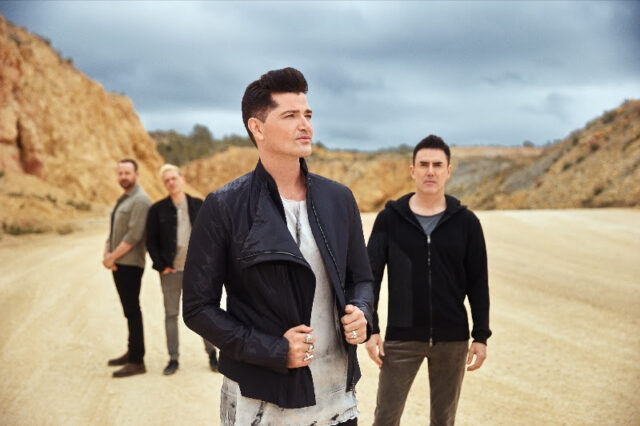2024 Mercury Prize ‘Albums Of The Year’ Revealed
The 2024 Mercury Prize 12 ‘Albums of the Year’ were announced on Thursday 25 July on BBC Radio 6 Music from 11am by Tom Ravenscroft (standing in for Mary Anne Hobbs).
The 2024 Mercury Prize 12 ‘Albums of the Year’ are:
Barry Can’t Swim ‘When Will We Land?’
BERWYN ‘Who Am I’
Beth Gibbons ‘Lives Outgrown’
Cat Burns ‘early twenties’
Charli xcx ‘BRAT’
CMAT ‘Crazymad, for Me’
Corinne Bailey Rae ‘Black Rainbows’
corto.alto ‘Bad with Names’
English Teacher ‘This Could Be Texas’
Ghetts ‘On Purpose, With Purpose’
Nia Archives ‘Silence Is Loud’
The Last Dinner Party ‘Prelude to Ecstasy’
BBC Music continue their long-standing broadcast partnership, which sees programming on BBC Four and 6 Music, celebrating all 12 albums.
The Mercury Prize recognises and celebrates the ‘Albums of the Year’, establishing a reputation for highlighting the work of both exciting emerging talent and more established bands and artists. The 12 ‘Albums of the Year’ are chosen by an independent judging panel and recognise artistic achievement across a range of genres. Albums by British and Irish artists with a UK release date between 15 July 2023 and 12 July 2024 are eligible for the 2024 Prize.
The 2024 Mercury Prize judges are: Danielle Perry – Broadcaster & Writer; Jamie Cullum – Musician & Radio 2 Broadcaster; Jamz Supernova – 6 Music Broadcaster & DJ; Jeff Smith – Head of Music, Radio 2 & 6 Music; Lea Stonhill – Music Programming Consultant; Mistajam – Songwriter, DJ & Broadcaster; Phil Alexander – Creative Director, Kerrang!/Contributing Editor, Mojo; Sian Eleri – Radio 1 Broadcaster & DJ; Will Hodgkinson – Chief Rock & Pop Critic, The Times; Sophie Williams – Music Writer & Broadcaster. The Chair of the judging team is Jeff Smith.
The overall winner of the 2024 Mercury Prize will be revealed in September with the Prize’s broadcast partner BBC Music providing exclusive television and radio coverage as well as online and social media support as part of the wider media and retail engagement around all the 12 albums. This year, other extensive promotional activity will replace the usual live performance event element of the Mercury Prize – details to be announced closer to the time.
As part of its ongoing commitment to supporting UK recorded music, renowned British premium audio brand, Bowers & Wilkins, continues as long-term official audio partner of the Mercury Prize. At the forefront of music creation for over 40 years, it is uniquely placed to help the Mercury Prize celebrate the album format and the creative achievements of the 12 artists.

![Charli XCX 2 [Credit - Harley Weir]](https://www.popscoop.org/wp-content/uploads/2024/04/Charli-XCX-2-Credit-Harley-Weir-640x427.jpg)











Deadpool & Wolverine is fun for die-hard Marvel fans – but it won’t save the MCU
By John Quinn, University of the West of Scotland
Let’s start with the good stuff. Deadpool & Wolverine is a fun, irreverent and blood-soaked summer blockbuster that fans of the Deadpool franchise are going to love.
Ryan Reynolds returns as Wade Wilson (Deadpool), and Hugh Jackman is resurrected as Wolverine, after his character was killed off in Logan in 2017. Packed full of cheesy music and meta-comedy, the movie delivers fan service in spades, finally bringing the bromance between Reynolds and Jackman to the big screen.
Meta-comedy and fan service are the things that make this film work. But they also serve as stark reminders of what’s not been working in the Marvel Cinematic Universe (MCU) these past few years.
Meta-comedy is a form of self-aware humour that playfully breaks the fourth wall, winks at the audience, and pokes fun at its own conventions. In Deadpool & Wolverine’s case, that’s the MCU and the superhero movie genre in general.
Fanservice is the inclusion of content that specifically caters to the desires and expectations of existing fans. It’s often risqué or sexual in nature, but can also be about bringing back iconic characters, one liners and familiar moments from previous instalments in a franchise – Deadpool & Wolverine does both.
The problem is Deadpool & Wolverine is so meta and packed full of fan service that to fully appreciate the film, viewers must understand the context of its production.
If you didn’t know that prior to 2019, when the Walt Disney Company purchased 21st Century Fox, the characters of Deadpool and Wolverine were not part of the MCU, then many of Reynold’s snarky asides about the acquisition will slide right over your head.
Similarly, if you’ve not seen the full slate of Marvel movies produced by Fox, such as the X-Men, Fantastic Four, and Blade franchises, to name but a few, then you’ll be wondering what the myriad of cameos is all about. To be honest, you might still be trying to remember just who these characters are even if you have seen them all.
If you’ve not been keeping up with the Loki series over on Disney+, then the Time Variance Authority sub plot, which allows Wolverine to be resurrected, might have you scratching your head. This all results in Deadpool & Wolverine having lots of stuff going on, but not much story.
Drunken eulogy
So, will it save the MCU? The short answer is no. Deadpool & Wolverine is most fun when looking back rather than forward. Underneath the over-the-top slapstick and super-violent comedy, there’s a sad air of nostalgia to the movie. At times, Deadpool & Wolverine feels like a drunken eulogy for the Marvel content produced by 20th Century Fox.
The elements that work in the film, like the bromance between Reynolds and Jackman, the cheeky self-referential comedy and the slapstick set pieces, are the things that separate it from the rest of the MCU.
The elements that don’t work in the film, like the intrusion of over-complicated multiverse plot strands and the need to be in the know about the plots of other Marvel films and shows to fully understand the plot of the film you’re watching, highlight some of the reasons fans have been abandoning the MCU in recent years.
Perhaps in the end though, Deadpool & Wolverine is a hopeful metaphor. If you’re willing to navigate the jumble of added MCU content, you’ll find the good stuff– the bromance between Deadpool and Wolverine.
Perhaps then, for Marvel fans who’ve weathered the post-Avengers: Endgame MCU disappointments, there’s a glimmer of something brighter on the horizon – but of course, that’s probably, to quote Wade Wilson, an “educated wish”.
John Quinn, Lecturer in Screen & Performance, School of Business and Creative Industries, University of the West of Scotland
This article is republished from The Conversation under a Creative Commons license. Read the original article.